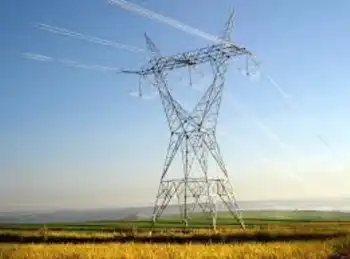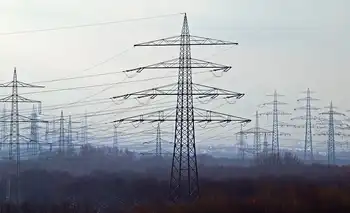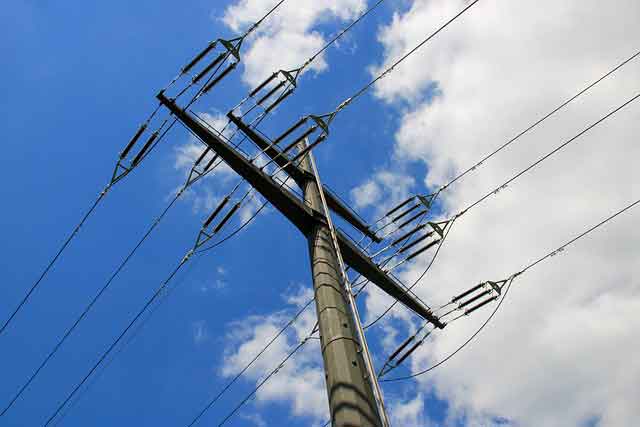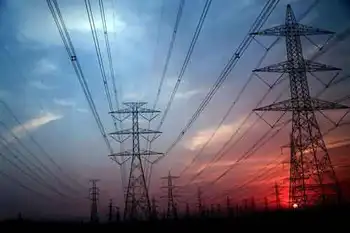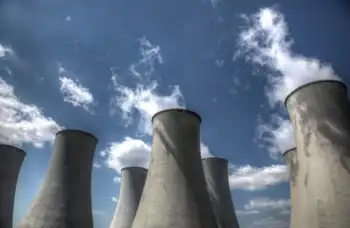German emissions rise with nuclear u-turn
By Reuters
Protective Relay Training - Basic
Our customized live online or in‑person group training can be delivered to your staff at your location.

- Live Online
- 12 hours Instructor-led
- Group Training Available
Following last month's nuclear reactor accident in Japan and an election defeat against the anti-nuclear Green Party, German Chancellor Angela Merkel announced a nuclear policy moratorium.
The move included an order to shut the country's seven oldest plants until June for extra safety checks.
Many analysts believe the closures may become permanent.
The loss of some 7,000 megawatt MW in nuclear power capacity prompted utilities to resort largely to coal power, and this could boost Germany's annual carbon emissions by 45 million metric tons, or around 10 percent, analysts have estimated.
"Replacing all of the 7,000 MW of nuclear capacity with coal-fired power could lead to an increase in German emissions of roughly 60 million tons a year," said Alessandro Vitelli, director of carbon consultancy IDEAcarbon in London.
Traders said utilities had replaced around 75 percent of the nuclear generation gap with coal, spelling an annual rise of 45 million metric tons.
This would put the surplus in German emissions until the end of June at 11.25 million metric tons.
German emissions from installations covered by the European Union's emissions trading scheme ETS stood at 453.88 million metric tons in 2010, up six percent on the year.
"Our initial estimate of the impact of the nuclear reactors shutting was an additional 5 million tons of coal needed for Germany as a whole but now we think it's likely to be 3-4 million," a trader with a major German utility said.
Deutsche Bank reckons that if the seven oldest reactors were permanently shut down immediately and the 10 others allowed to continue generating under terms of revised legislation passed in 2010, then Germany's surplus demand for carbon allowances under the ETS between 2011 and 2020 would be 250 million tons.
The drive toward coal power generation is being helped by Germany's power mix structure and market fundamentals.
Germany does not have an import terminal for liquefied natural gas LNG and a relatively small gas power generation capacity of around 14 percent of the country's generation mix. It simply cannot fill the nuclear gap with the cleaner gas option.
And Germany is unlikely to build an LNG terminal in the near future as its two biggest utilities, E.ON and RWE, are involved in major gas pipeline projects.
E.ON has partnered up with Russian Gazprom in building the Nord Stream gas pipeline, which is to transport Russian gas through the Baltic Sea into Germany.
RWE is a major partner in the Nabucco pipeline project which aims to bring central Asian gas through Turkey into western Europe.
Analysts say that German utilities would not invest in large-scale gas power capacity increases before it sharply increased its import capacities, and coal was therefore the fossil fuel of choice for years to come.
Market price developments in recent weeks also favors coal over gas.
At current prices, coal generation offers a German power producer a revenue margin of around 5.50 euros per megawatt-hour MWh for baseload 24 hours electricity delivered throughout 2012.
The equivalent gas contract, by contrast, would make a loss of around 3.25 per MWh, meaning gas power plants in Germany are only profitable during the more expensive peak delivery hours daytime on weekdays.
"At current prices, all German producers will be burning coal flat-out 24 hours if the can, and use gas generation to support demand during peak hours," said one German utility trader.
A coal trader supplying German utilities said: "All the German utilities have bought some coal just recently and are now re-assessing what they need through the summer and for the winter.
"The change to the nuclear policy is looking rather positive for coal burn in Germany through the year."





